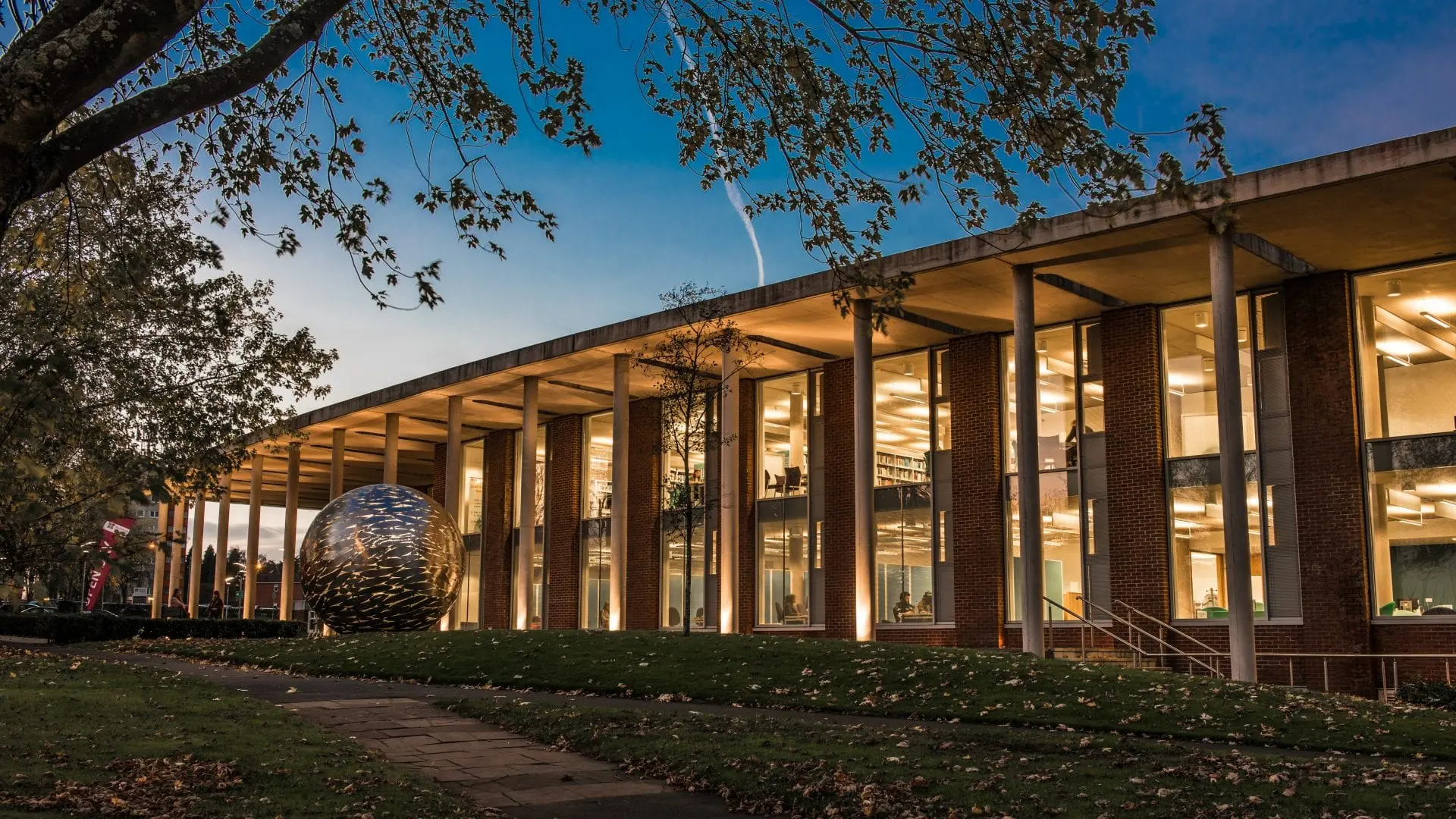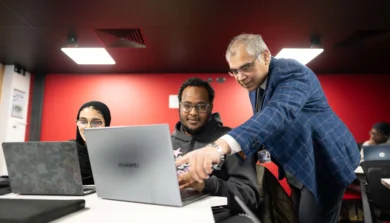MSc Data Science (conversion)
Postgraduate
- Start date
- –
- Study mode
- –
- Course length
- –
- UCAS Code
- –

Interested in a different start date?
Discover how data-driven thinking, ethical awareness and practical skills can open new career pathways. The MSc Data Science (Conversion) at Birmingham Newman University offers a clear and structured introduction to the principles and practices of working with data. Designed for graduates from non-computing backgrounds, the course helps you build confidence in a new discipline while developing the technical and analytical skills needed to engage with data in a purposeful and informed way. You will be supported to think critically about how data is used across society and how it can shape decision-making.
Book a free consultation
Want to find out more about your options? Book a free consultation with an Academic
Why Study This Course?
The MSc Data Science (Conversion) at Birmingham Newman University is designed for graduates who are ready to explore a new discipline and develop skills that are increasingly valued across sectors. Whether you are changing direction or returning to study, the course offers a supportive and empowering space to build your confidence and grow into a capable data professional. You will be encouraged to think critically, apply your learning to real-world contexts and reflect on the wider impact of data in society.
Explore Data Through Practice and Application.
Throughout the course, you will engage with key areas such as programming, data wrangling, machine learning, ethics and visualisation. You will be supported to build confidence with tools such as Python, R and SQL, while developing your ability to communicate findings clearly and work collaboratively. The course encourages you to reflect on your progress, connect theory with practice and explore how data can be used responsibly and effectively. All assessments are coursework-based, allowing you to demonstrate your understanding through practical tasks, reports, presentations and a final independent project.
Supportive and Personalised Learning.
At Birmingham Newman University, you will be part of a welcoming and inclusive academic community that values individuality, reflection and care. The course is taught by experienced lecturers who are passionate about data and committed to your success. With a focus on participation and personal development, you will be encouraged to explore your potential in a respectful and empowering environment. You will learn alongside others, share experiences and build confidence in your ability to engage with complex ideas and practical challenges. Whether you are preparing for a new career or expanding your professional skills, you will be supported every step of the way.
Complimentary Surface Pro
All Computer Science students set to start in 2026 will receive a Surface Pro laptop. This will be automatically loaned to you for the entire duration of your course. This exclusive, dedicated device is yours to support your studies from day one.
Complimentary Surface Pro
All Computer Science students set to start in 2026 will receive a Surface Pro laptop.
This will be automatically loaned to you for the entire duration of your course. This exclusive, dedicated device is yours to support your studies from day one.

Got a question you’d like to ask?
Entry requirements
We welcome students from all backgrounds and accept a wide range of qualifications. If yours aren’t listed, don’t worry – our Admissions Team can help you explore your options. See full entry requirements.
A relevant honours degree, 2:2 or above.
If English is not your first language, you must have an IELTS score of 6.5, with no element below 6.0. (Other English language qualifications are also accepted. Please contact admissions for further information).
Consideration will be given to applicants with lower grade in qualifications (e.g. a 3rd class degree or non-honours degree) who have a relevant range of post study professional experience. Professional experience will be considered by the programme leader in conjunction with the quality office on an individual basis.
Please contact Admissions if you have any questions.
Course fees
The tuition fee for academic year 2026/27 is: £10,250. Tuition fees for courses starting April to May 2026, fall within the 2025/26 academic cycle.
Fees for the 2025/26 academic year can be found on our Student Finance pages.
Additional costs
The University will review tuition fees and increase fees in line with any inflationary uplift as determined by the UK Government, if permitted by law or government policy, in subsequent years of your course. It is anticipated that such increases would be linked to RPI (the Retail Price Index excluding mortgage interest payments).
Computer Science News

Andrew Csizmadia Named Fellow of the British Computer Society for Excellence in Computing Education
Andrew Csizmadia SFHEA, Emeritus Fellow in Computing Education at Birmingham Newman University, has been appointed…

Book an open day
Find out about our next open day. Book now to secure your place.
Our Careers team provides tailored advice, placements and workshops to help you build confidence and prepare for life after university.

Where This Course Can Take You. This degree prepares you for a wide range of careers where data plays a central role. You will graduate with the ability to work independently, communicate your findings clearly and contribute to data-informed decision-making across sectors such as healthcare, finance, education, government and technology. Whether you are looking to change direction or expand your career options, the MSc Data Science (Conversion) provides a strong foundation for your next steps, grounded in practical skills and critical thinking.
Accreditations and Exemptions
The MSc Data Science (Conversion) is grounded in the values of ethical practice, critical thinking and applied learning. While it is not formally accredited by a professional body, the course has been developed in line with current academic and industry expectations. It introduces you to the standards and responsibilities expected in data-related roles and provides a strong foundation for further training or certification. Many students go on to pursue careers in sectors such as healthcare, education, finance and government, or continue into postgraduate research. The skills and insight you gain can also support your development in roles involving analysis, decision-making and digital transformation across a wide range of professional contexts.




